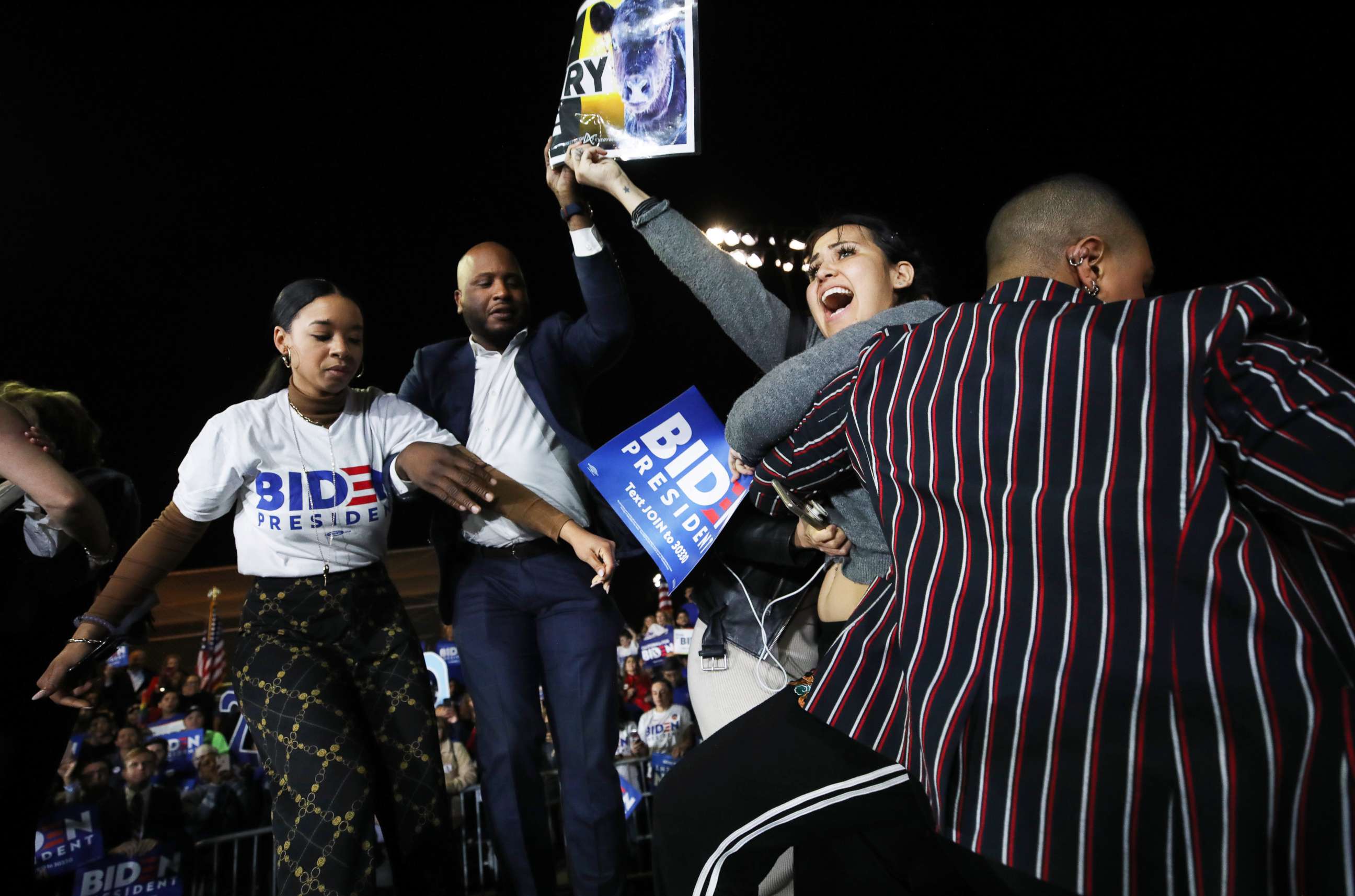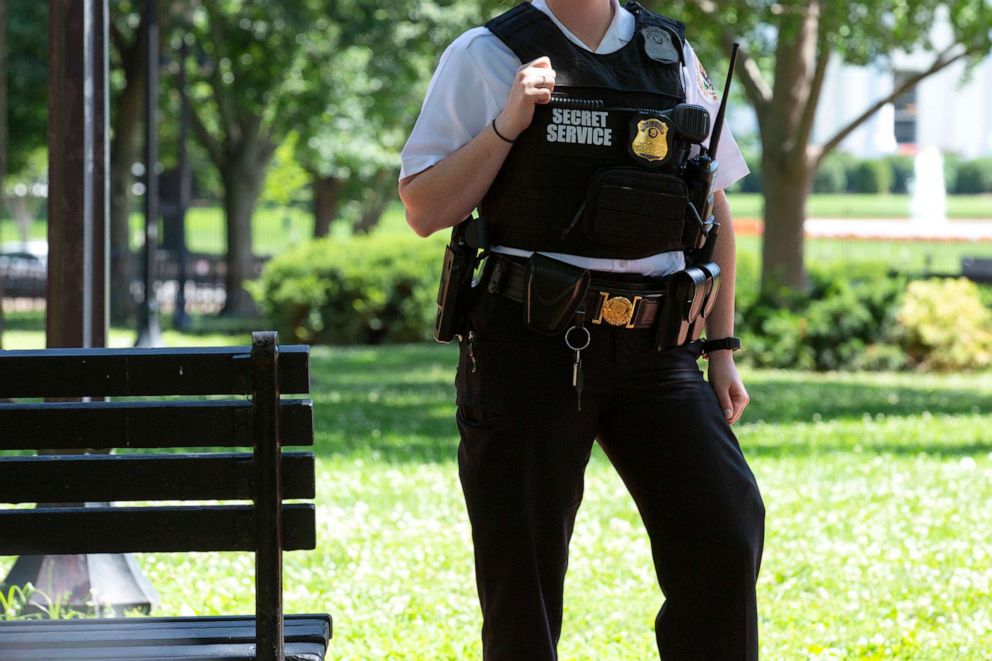Congressional lawmaker requests Secret Service protection for Democratic candidates
The request comes after protesters stormed the stage at a Biden rally Tuesday.
Democratic presidential candidate Joe Biden on Thursday, when asked whether he wanted Secret Service protection as a Democratic lawmaker has proposed, said security is something that's becoming "increasingly" necessary.
“I think that's something that has to be considered the more outrageous some of this becomes,” the former vice president said on NBC's "Today" show when asked about an incident in which two anti-dairy protesters stormed the stage as he was speaking at a Super Tuesday night rally in Los Angeles.
While he didn't go so far as to ask for the protection, Biden said he is concerned about his wife, Jill, whom he said has acted as security for him twice before.
“I wasn't worried for me. I was worried for Jill. She's incredible. She did the same thing in another event in New Hampshire where a guy I didn't see coming behind me, she runs up and grabs him. She and my daughter have more courage than I think -- anyway, that's what I worry about. I worry about Jill,” he said.
The chairman of the House Homeland Security Committee on Wednesday asked the acting Secretary of Homeland Security, Chad Wolf, to immediately consider giving Democratic presidential candidates U.S. Secret Service (USSS) protection for the rest of the campaign.

The letter specifically names former Biden and Sen. Bernie Sanders, I-Vt., saying that they appear to satisfy several criteria to be considered for protection. The letter lists factors such as large campaign operations, high polling averages, and physical threats to safety as factors to be taken into account. Under the law, the secretary of homeland security has the authority to determine which candidates should receive protection, after consulting with congressional leaders.
The request came just hours after the anti-dairy protesters rushed the stage in Los Angeles Tuesday night.
Rep. Cedric Richmond, a co-chair on the Biden campaign, acknowledged being aware of the request in a call with reporters Wednesday.
"Let me say, I'm not sure about the vice president, and the incident on stage last night, but I can tell you that the Democratic Congress is worried about it," Richmond said.
"I urge you to immediately initiate the consultation process to determine whether to provide USSS protection to certain Democratic Presidential candidates," the letter from House Homeland Security Committee Chairman Bennie Thompson said.
Nick Steen, a retired secret service agent and former supervisor of the presidential Protection Division, told ABC News that preparation for the election starts as far out as a year before a president's campaign starts -- so in this case "late 2018, early 2019."
The problem is, Steen explained, the division doesn’t know how many agents will need to be assigned to the campaign trail.
He explained that there is often a push and pull between the campaigns and the Secret Service.
While the campaigns want to give more access to supporters, the agency wants to do the best to secure the candidate, he said.

Sanders received Secret Service protection as a Democratic contender in 2016.
Steen said hecalled that the Vermont senator didn’t want protection, but after a few stage jumpers, the campaign eventually got a detail.
"Stage jumpers are a new phenomenon," Steen said.
Other candidates at the time, Donald Trump and Ben Carson, also were given Secret Service protection while Hillary Clinton kept her protective detail she had as a former first lady.
When Steen was assigned to then candidate Trump in 2016, they encountered a stage jumper, but luckily, the Secret Service set up enough distance between the barricade and the stage to subvert the threat, he said.
"People who tried to rush on the stage never made it, when the secret service was involved," Steen added.

Even if candidates are found to be eligible for protection, they do not have to accept it. For example, in 2016, Sen. Ted Cruz, declined the security detail because it kept him at a distance from voters.
According to the Secret Service, protection for major candidates and their spouses began after the assassination of Robert Kennedy in 1968, and it is designed to maintain the "integrity of the democratic process."
A DHS spokeswoman said it was former Secretary Jeh Johnson who established the formal process to request Secret Service protection.
"The first step of the process is for a candidate to meet established criteria and formally request protection. Another step of that process is for a group of bipartisan Congressional leadership, in the Congressional Protection Advisory Committee to submit a recommendation to DHS," Heather Swift, a DHS spokeswoman, told ABC News in a statement. "To date, DHS has not received a recommendation from Congress concerning any candidate."
She added, "We stand ready to execute if recommended."
ABC News' Molly Nagle, Alexander Mallin, John Parkinson, Luke Barr and Jack Date contributed to this report.




